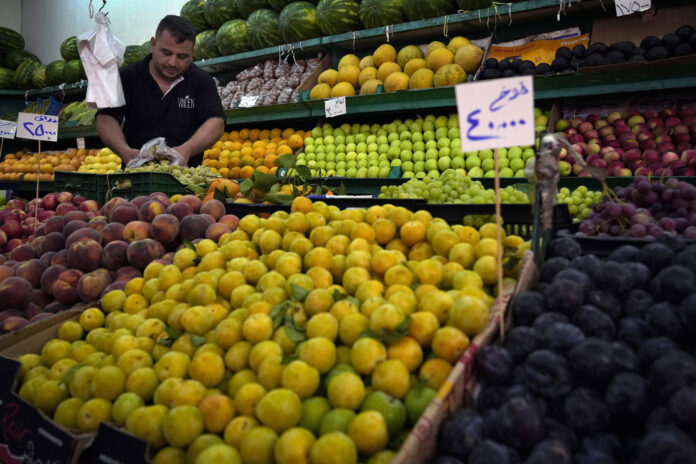Soaring food prices around the world are being triggered by Russia’s war in Ukraine, not the economic sanctions that have come with it, NATO’s secretary general says.
Jens Stoltenberg made those comments to reporters in Istanbul, Turkey, on Thursday, one day after Russia rejoined a United Nations-and-Turkey-brokered deal to keep grain and other commodities moving out of Ukraine’s ports.
“The increased prices and problems we have seen in the global food market is not caused by sanctions, it is caused by the war itself,” he said alongside Turkish foreign minister Mevlut Cavusoglu.
“The best way of ending this is for (Russian) President (Vladimir) Putin to end the war.”
Worries of an international food shortage were eased on Wednesday when Moscow rejoined the grain deal after announcing a few days prior it was suspending its participation in it. With global markets tight, experts worried food prices would rise further if the deal was suspended, and poorer countries would have to pay more to import grain.
The United Nations and Turkey brokered separate deals with Russia and Ukraine in July to ensure Africa, the Middle East and parts of Asia would receive grain and other food from the Black Sea region during the war.
But the conflict, which started on Feb. 24, has thrown global economies off balance. The International Monetary Fund last month cut its global growth forecast for 2023 amid colliding pressures from the war, high energy and food prices, inflation and sharply higher interest rates.
Western nations aligning with Ukraine have imposed punishing economic sanctions on Russia in an effort to slow Moscow’s war machine.
2:19
More people are turning to food banks as food prices increase
In September, food prices continued to soar across the country even as the annual rate of inflation cooled to 6.9 per cent, according to Statistics Canada. Prices on food purchased from the grocery store continued to soar, rising 11.4 per cent to a new 41-year high. That month, shoppers paid more for meat (7.6 per cent), dairy (9.7 per cent), bakery goods (14.8 per cent) and fresh vegetables (11.8 per cent), according to StatCan.
Trending Now
Dry shampoo recall: More than 100 incidents or injuries reported in Canada so far
Daylight saving time 2022: Here’s when to turn your clocks back this month
According to the UN, its food agency’s world price index fell for a sixth month in a row in September, but food prices were still 5.5 per cent higher than a year earlier. The price index tracks the most globally traded food commodities.
Finance Minister Chrystia Freeland has warned of an “economic slowdown” for Canada, and has said Russia’s war in Ukraine is proving to be “one of the biggest threats” to the world economy at the moment. Freeland was set to unveil Ottawa’s fall economic outlook on Thursday afternoon.
“One of the biggest threats, not only to the lives of Ukrainians right now, not only to the sanctity of the international rules-based order, but also to the world economy today is Russia’s invasion of Ukraine,” Freeland said Oct. 14.
“There’s one simple thing that could happen that would make the global economy much more secure, and that is for Russia to get out of Ukraine.”
2:34
Freeland reiterates urgency of stopping Russia as IMF and World Bank meetings conclude
Stoltenberg struck a similar tone on Thursday in Turkey.
“It is the war of aggression that is undermining and threatening the supplies of food from Ukraine to the world market,” he said.
“The grain deal helps to reduce the effects, but the lasting solution will be to end the war, and that’s Russia’s responsibility to end this war of aggression against Ukraine.”
— with files from Global News’ Craig Lord
© 2022 Global News, a division of Corus Entertainment Inc.



